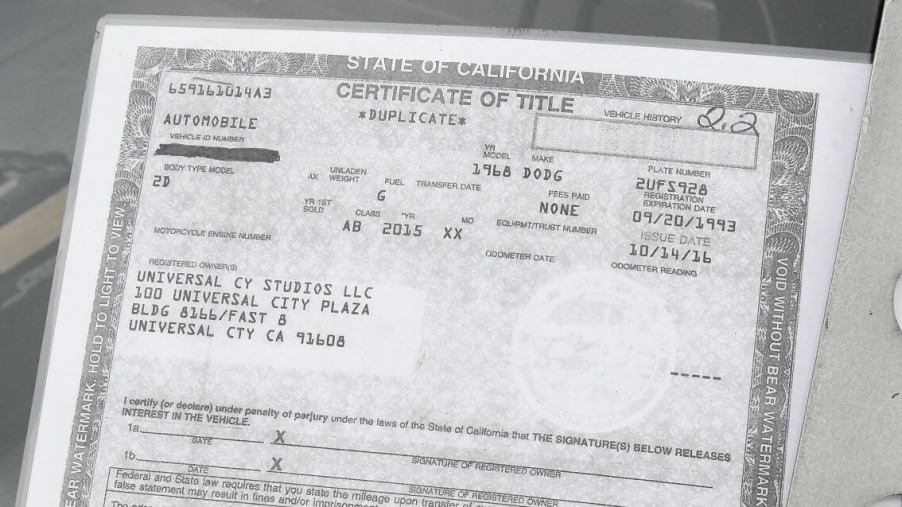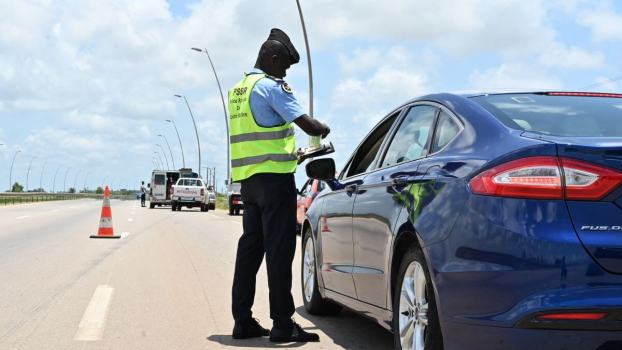
A Comprehensive Guide to the Many Types of Car Titles
A car title is a document that shows legal ownership of a vehicle. However, there are several different types of vehicle titles, each designating the condition of the vehicle. So, what are the different types of car titles, and what does each mean?
What is a car title?
A car title, which also goes by the term “pink slip” in common parlance, is a state-issued document proving a vehicle’s legal owner, either a person, company, or organization. A car title typically includes the owner’s full name and address, signatures of the owner and sometimes a state official, and the issue date of the title. It also includes identifiers of the car, including its vehicle identification number (VIN), make, model, year, and mileage at the time of the title issuance.
Those who take out an auto loan will receive its title once it has been paid in full. The loan issuer will possess the title until that time. Vehicle titles can also be transferred from owner to owner.
Still, there is a long list of car title types. Here’s what they mean;
Clear title
A “clear title” shows the vehicle is owned outright and has no lien or existing loans.
Junk title
A junk title is issued to a vehicle sold to a junkyard or other company where it will be used for scrap metal or disassembled with its parts and components sold.
Salvage title
A salvage title notes the car’s valuation has decreased significantly because of an accident, theft, or major repair. The threshold for a vehicle requiring a salvage title is typically if it loses 75% of its original value, according to Car and Driver.
Reconstructed or rebuilt title
A reconstructed title is issued by insurance companies or repair/customization shops to denote that the car has undergone notable repairs or has been reconstructed in a way that it is altered from its original state. A rebuilt title is similar, but as the name suggests, it is issued when a vehicle has been significantly rebuilt.
Bonded or affidavit title
A bonded or affidavit title essentially denotes certain ownership documents are missing that would otherwise be required to obtain a title, or a car’s title is missing. An affidavit title is a document signed by the owner swearing they legally own the vehicle. A bonded title establishes car ownership, but the owner must obtain a surety bond, which is a set amount depending on state law.
Water damage title
This type of title is issued to vehicles with severe water damage, including from a flood.
Dismantled title
A dismantled title denotes a car that has been totaled and will be disassembled with its parts and components sold.
Odometer rollback title
A vehicle that has its odometer illegally “rolled back,” so its odometer shows a lower and false mileage reading, is issued such a title.
Other vehicle title-related terms
An attempt to misrepresent a car’s title type, usually to sell it for an inflated price, is considered “title laundering,” and each state has different laws mandating what is considered title laundering.
To help mitigate this issue, car titles are sometimes given a “title brand.” This denotes the vehicle has incurred serious damage, such as flood damage, that is rebuilt from salvage parts, has an odometer rollback title, or is a “lemon.”
A “lemon” notes the car has consistent and critical failures of the same part of the component despite repeated attempts to remedy the issue.
A car may also be issued a certificate of destruction. This document is used when an insurance company has taken ownership of a vehicle that will be scrapped.




